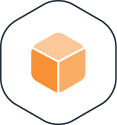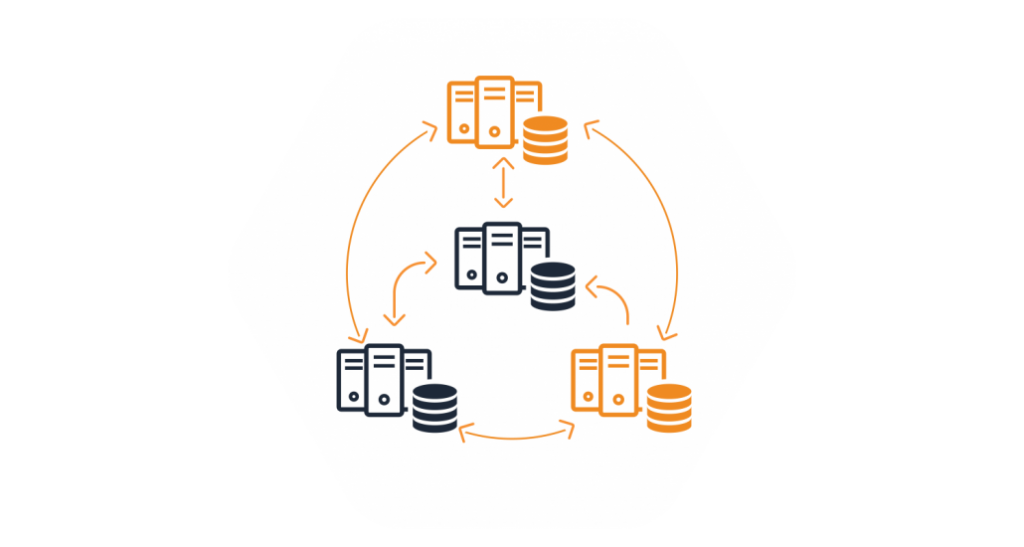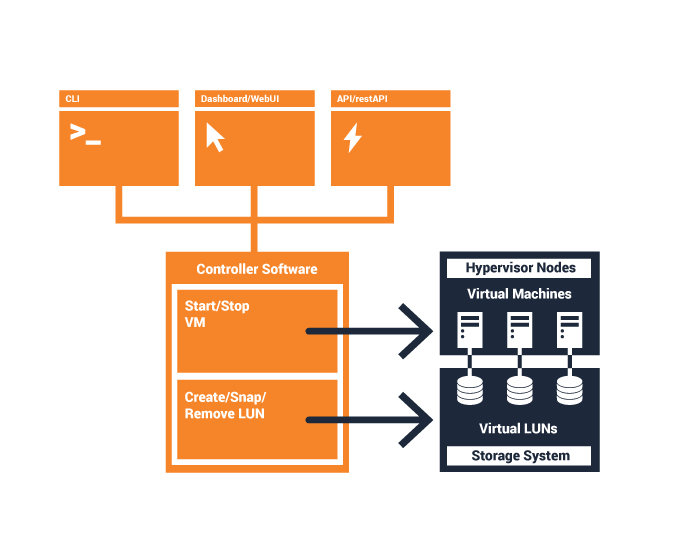
The revolutionary Block Storage Replication tool. Companies implement software-defined storage (SDS) in order to easily provision and manage data storage, independent of the underlying hardware. LINBIT’s groundbreaking SDS product ties together data availability, performance, and scale, making it perfect for your cloud storage environment.
As a provider, your clients demand a high performance, low latency cloud environment. You need to minimize CPU utilization to scale appropriately. Your infrastructure must be resilient and cost effective to remain competitive.
Leveraging LINBIT SDS software, you can build your cloud on common off-the-shelf hardware; whether those servers are spinning disk, all-flash, or hybrid. These setups can be hyperconverged or dedicated storage/compute servers. LINBIT’s robust open-source software-based platform enables the deployment of large server clusters configurable to your specific use-case.
From your storage’s point of view, an enterprise virtualization system has the same requirements as a cloud environment. Your storage needs to tolerate hardware failures. LINBIT SDS will provide this resilient storage.


Storage needs to be easy to provision, fully accessible, and as reliable as possible. Ideally, you can achieve this without expensive license fees from storage vendors.
Yes. LINBIT has an RDMA (verbs) API. The DRBD software works over Infiniband, RoCE, or iWarp to overcome the performance limitations of TCP/IP.
LINBIT SDS is perfectly suited for database workloads and structured data. We’ve reached up to 400,000+ IOPS for a single volume.
Find out more on our Support Page.
Below are our subscription tiers with up to 24×7 global support services. The LINBIT engineers are perfectly trained to help your team design, deploy, and support your infrastructure. Find our open source software here.
Includes access to our certified repositories and Community non-SLA support.
Offers the addition of unlimited support tickets and remote installation support.
Offers 24x7 access to our expert support with our fastest turnaround times.
Your open source project is mission-critical so our team is here to help. We begin most relationships with a technical consultation. Reach out to LINBIT with your questions and project goals to begin today!







As the world’s leading provider of Software-Defined Storage, High Availability, and Disaster Recovery software, LINBIT adds server clustering capabilities to any containerized, virtualized, or bare metal environment.
Copyright © 2025 LINBIT
All rights reserved. The words LINSTOR®, DRBD®, LINBIT®, and the logo LINSTOR®, DRBD®, and LINBIT® are trademarks or registered trademarks of LINBIT HA-Solutions GmbH.
By completing payment, you agree to allow your credit card to be charged the amount indicated above for access to LINBIT certified binaries.